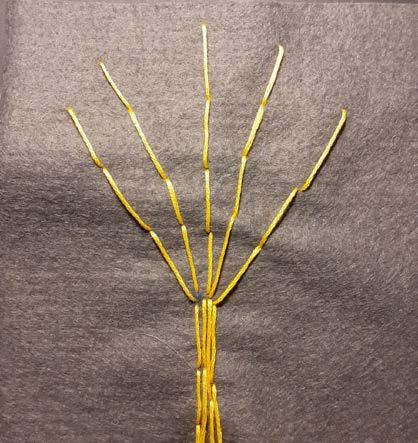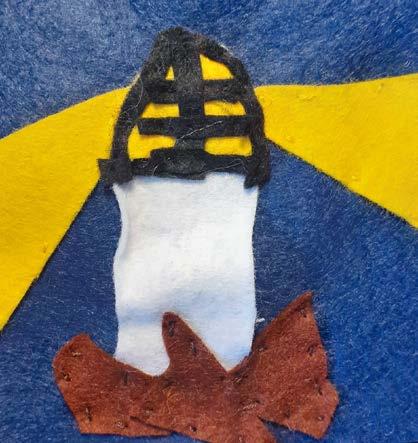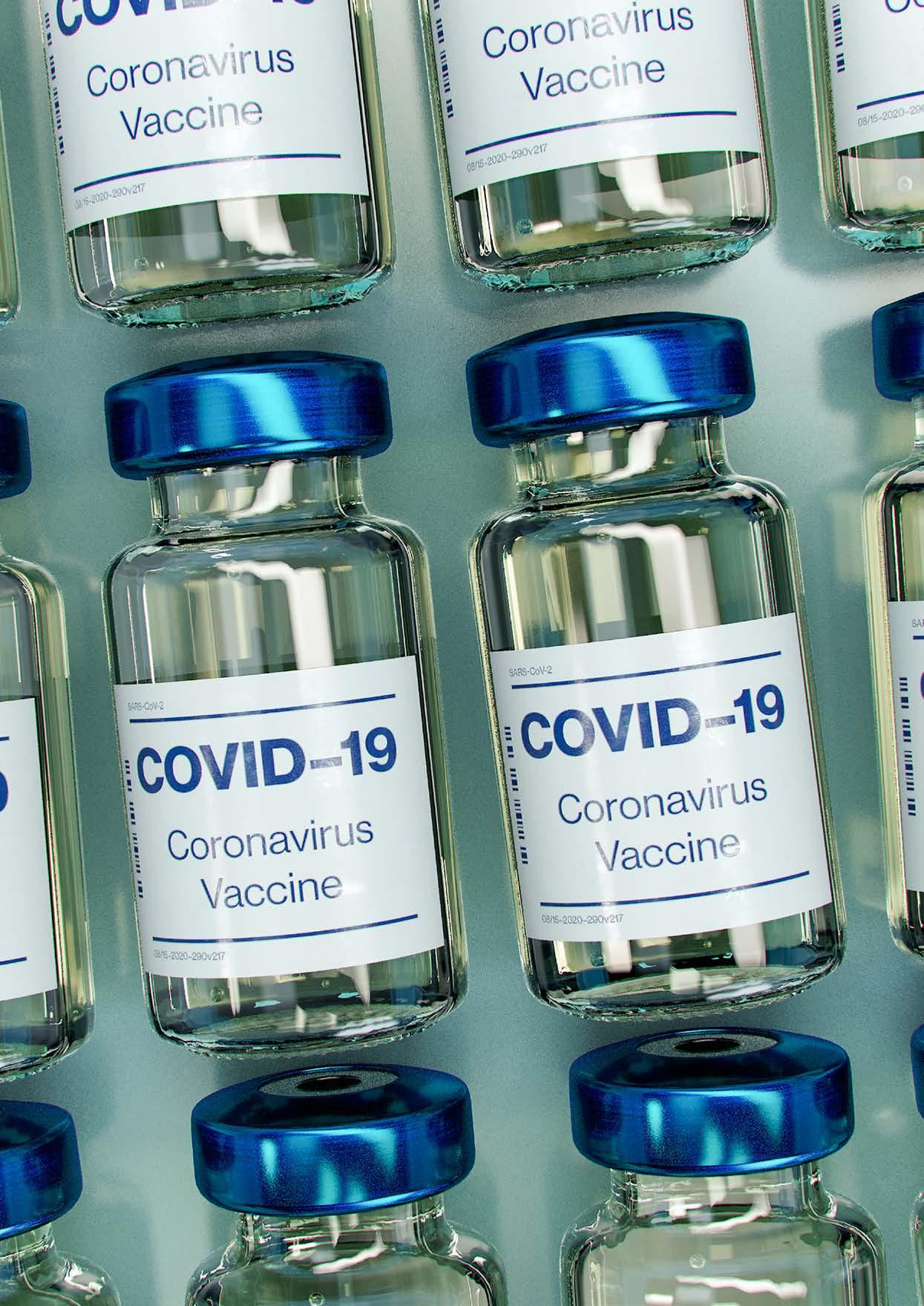
14 minute read
Leading from the front
LEADING
FROM THE
From leading a Ministry of Defence task force to sourcing PPE for the NHS. From inventing a field ventilator and training laboratory staff to acting as national spokespeople, Staffordshire University staff, students and alumni have played active roles throughout the pandemic. Seven individuals share their story with Horizon magazine.
COURTNEYJAYNE FOLEY MBE
Her work as a Maritime Electronic Warfare Manager within the MOD is so secretive that, other than confirming her job title, Staffordshire University Forensic Science graduate Courtney-Jayne Foley can’t talk openly about it.
But Courtney-Jayne’s work during an intense three-month secondment towards the start of the pandemic is a different matter entirely.
She is not only able to talk about her experiences, she was awarded an MBE in the Queen’s New Year’s Honours List in recognition of that work.
Courtney-Jayne, who graduated in 2011, answered a call for volunteers and was seconded to lead the MOD’s special operations team in PPE procurement for the NHS.
Her job was to help ensure the NHS not only had enough PPE but that the PPE being provided was of suitably high quality.
“What I ended up doing was special operations and politically sensitive,” she says. “I did a lot of work with the Sri Lankan High Commission and the Beijing Embassy. I was setting up processes and technical assurances.
“It was quite an eye opener as to just how much work goes into it. The NHS was overwhelmed so they brought us in to boost the numbers.”
From April to June 2020 Courtney-Jayne was working intense 12 to 14 hour days on the project and didn’t have a day off work during that period.
“You watch the news, see what’s happening and want to help, which is why I volunteered,” she says.
Courtney-Jayne has now gone back to her day job, but says those three months were a hugely beneficial experience.
“It involved a lot of different skills, dealing with people you normally wouldn’t deal with. I had to be quite resilient as I was leading a team and you have to lead from the front. Even when you’re having a bad day you can’t be seen to be having a bad day.”
FRONT
IAN DAVIES
As Healthcare Science course leader and a senior lecturer in Biomedical Science, when the pandemic began Ian Davies’ first thoughts were with the 70 Staffordshire University students on apprenticeships in pathology departments at hospitals around the country.
“They were right at the forefront of the testing and still are at the forefront of the testing, so obviously what we had to do was make sure they were okay in terms of their welfare and getting the support that they needed,” he says. “That was the priority.”
As the pandemic progressed and it became clear that extra laboratory staff were needed to meet demand, Ian and his team took on the task of retraining retired NHS employees who were being called back into service.
Ian then began working with the NHS National COVID-19 Testing Cell to put together national online training provision.
“This is at the point of launch now. We have participants across England who are joining this programme, new entrants to pathology laboratories. We’re providing them with a whole range of professional practice training so again we can ensure they are safe and that the results they are producing are safe.
“It’s really effective. It means that the people on the ground working in the labs can work with these new staff. We’re sharing some of that teaching burden with them so that they aren’t distracted from doing their jobs. Hopefully that means safe, effective results going out nice and quickly.”
Ian says NHS England came to Staffordshire University to provide the online training because of its reputation across the NHS for its apprenticeship programme.
“They came to us knowing we could provide this online blended learning delivery. We were only too willing to step forward.”
Ian says the online training is due to run for the next few years to ensure laboratories are well staffed for the future.
“Obviously the need for testing will carry on, certainly into the medium term,” he says, “We need to make sure that we’re safe and we need to make sure that the NHS system is safe.
“Despite vaccinations and all the really brilliant stuff, we need to have that resilience to make sure it’s still capable of responding.” Ian believes the pandemic has reminded people of the importance of the work that happens out of public view in laboratories.
He adds: “The diagnostic side of things can get a little bit forgotten. It’s certainly come to the fore with COVID-19.
“They are also trying to maintain service as usual as much as possible - so cancer diagnoses, blood transfusions, all of those things have to keep going.
“Although COVID-19 is a massive part of the work for laboratories, it’s on top of the work they are already doing. The stress that they are under is pretty intense.
“It’s good that we’ve been able to highlight the profession and it’s good that we’ve been able to pull out some of the positives about what laboratories are actually doing in the background.”
DR ARTHUR HOSIE
As a microbiologist and course director of Biological Sciences at Staffordshire University, Dr Arthur Hosie has become something of a media personality during the pandemic.
His expert opinions have been sought across radio and television and his contribution was officially recognised by the Lord Lieutenant of Staffordshire.
“When the local media contacted the University asking for a volunteer to speak I put myself forward and it snowballed from there,” he says. “I’ve done more than 140 radio interviews now, both for local media but also further afield.”
Back in December 2019 Arthur told his final year students that he was expecting a pandemic to come very soon.
“I didn’t realise just how true these words were,” he says. “As the news was breaking from Wuhan the students were preparing for an exam where they had to write about emerging infections and diseases.”
Arthur has been sharing his expert opinions on everything from border closures and lockdown to PPE.
“I started off by talking about whether we should be concerned and then perhaps how we should be responding. As a general microbiologist I’ve got an overarching view not just of public health but also of molecular biology, vaccine development and vaccine testing.
“It’s difficult to just focus on the science and not the politics, but I’ve managed it so far.”
One of the questions he is most commonly asked is when we might finally be free of COVID-19, so of course Horizon magazine had to ask too. His answer may not please everyone.
“It’s very difficult to tell and of course the virus may adapt and change. I think when we talk about being free of this it depends whether we’re talking about it at a local level in the UK or whether we’re thinking about global freedom,” he says.
“I think we may have this coronavirus in circulation for many many years but of course if we can actually get an immune response through the vaccination programme then we should begin to get back to normal perhaps towards the end of this year.
“But then when you think about getting back to normal in the UK you have to think about protecting the world internationally and making sure that other people are vaccinated, especially if they are going to get involved in global travel.”
He adds: “It’s an important part of a scientist’s role to make sure we are not just keeping all the knowledge to ourselves and our students but that we are sharing it with people, especially at times of need such as a pandemic.”
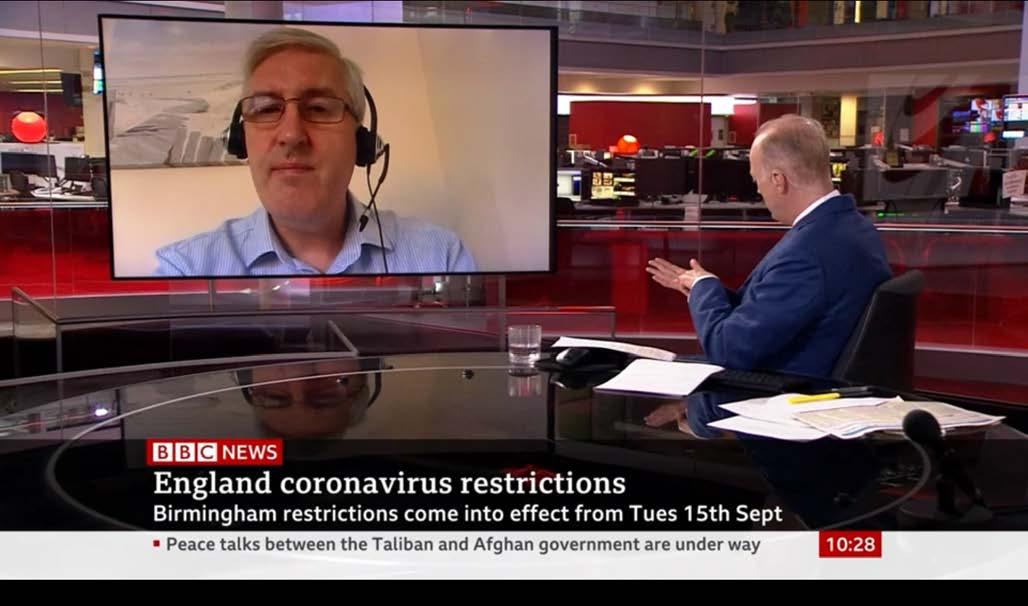
Dr Arthur Hosie gives his expert opinion during a TV news appearance.

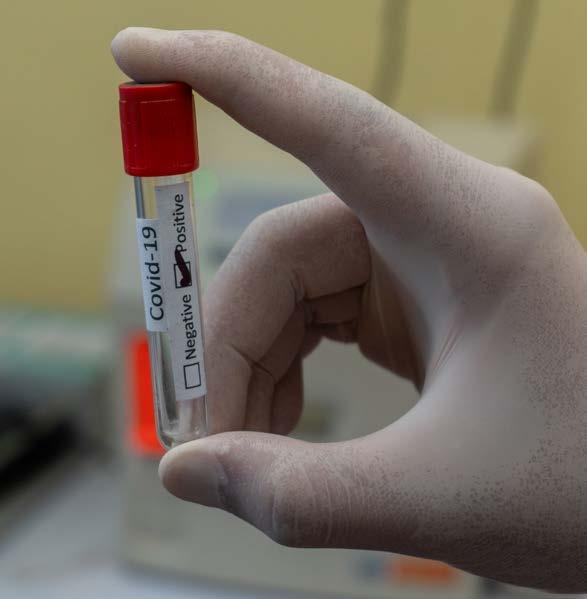
Staffordshire University students have been working in laboratories throughout the pandemic.
PROFESSOR SIAN GRIFFITHS OBE
An honorary doctor of Staffordshire University and former chair of Staffordshire University Centre for Health and Development, Sian Griffiths’s expert opinion has been sought by public health bodies and the media throughout the pandemic.
An expert on global public health, she co-chaired the 2003 SARS inquiry for the Hong Kong Government. She is also a member of both the Board of Public Health England and the Board of Public Health Wales.
“SARS, of course, is a coronavirus, so my experience from Hong Kong, having chaired the enquiry and then working in Hong Kong, enabled me to understand what the pandemic might mean or how we might get into a pandemic from the first outbreak in Wuhan,” she says.
Sian has been giving media commentary as the pandemic has progressed and explaining the impact of developments around the world.
“When policy comes out I talk to the media about what’s behind the change in policy and what the implications are.”
Sian says media outlets are always asking for her long term predictions of how the pandemic will play out, but that they are incredibly difficult to give.
“We know that viruses mutate,” she says. “We know that sometimes the mutation is benign and then sometimes it can cause more problems. The UK is really lucky because we have the capacity to do genomic sequencing and in fact we do about 50% of the genomic sequencing across the world, which is just amazing.”
Sian says the world can learn many lessons from SARS. “We know from SARS that you have to be prepared. If you look at Hong Kong and some other countries in the Far East who have had SARS, they were much readier for COVID-19 than we were.
“The population was readier, the healthcare system was readier, the border controls were put into place much quicker.
“If you look at what we learnt from SARS, we emphasised in our report that the response needs to be global, that science needs to be shared, that health systems need to have surge capacity so that they can step up to address the needs of the pandemic and provide appropriate treatment, support and care.
“We know that it’s very stressful for healthcare workers and in the SARS inquiry report we talked a lot about mental health issues in pandemics. We also talked about the need for clear systems of communication to the population so that the population is able to understand why certain measures are necessary and to comply with them.”
She adds: “We learnt a lot from SARS and you could say that at the start of COVID-19 perhaps the UK hadn’t learnt the lessons in the same way that countries like South Korea, Hong Kong and Taiwan had. They were able to step up the response more quickly.”
DR DEREK WARDLE
An 82-year-old retired engineer, Dr Derek Wardle has invented a method of sterilising previously single-use PPE so that it can be reused
safely by NHS staff.
Derek, who recently completed his third degree at Staffordshire University, perfected his invention using a wheelie bin and an old tumble dryer under his carport at home.
He hopes it will save money and resources while also cutting down on the quantity of PPE sent to landfill.
By using a particular wavelength of UV, Derek was able to generate the gas ozone, which could be used to kill traces of the COVID-19 virus before quickly dissipating.
Unable to find a sealable cabinet due to coronavirus restrictions, Derek used his wheelie bin and UV lights to conduct experiments to give him proof of concept. This showed that it is possible to sterilise rigid PPE, such as visors, if stacked in an ozonated enclosure. After the first lockdown the test runs were successfully repeated in the laboratory using a purpose-built cabinet.
Derek used the same method to look into sterilising PPE clothing such as gowns, aprons and masks.
“It’s daft how simple and how effective it is,” he says. “I don’t want any money for this, I’ve done it on a purely voluntary basis.”
Derek is currently trying to organise third party tests at an independent laboratory, and believes his invention could save millions of pounds.
Derek completed his PhD at Staffordshire University in 2019 following on from a BA in Business Studies in 1992 and an MSc in Engineering in 2011.
As COVID-19 postponed his third official graduation ceremony, he hired a cap and gown and dressed up for his own private graduation in his garden.
“It was fantastic,” he says. “I thought that at my age I could pop my clogs and only get it posthumously, so I did it myself.”
PROFESSOR NACHIAPPAN CHOCKALINGAM
A field ventilator developed with help from Professor Nachiappan Chockalingam, the Director of Staffordshire University’s Centre for Biomechanics and Rehabilitation Technologies, will help to save lives in developing countries.
The low-cost ventilator uses a windscreen wiper motor, cam and lever system and a standard ambulance bag to ventilate the patient. It’s designed to run in remote parts of the world on battery, solar panels, wind turbines or mains power.
Nachiappan, a liveryman with the Worshipful Company of Engineers, played a pivotal role in taking the product from idea to testing in just three weeks.
The initial concept was his but it has now been worked on by around 50 people in five countries around the globe.
The technology was designed with COVID-19 patients in mind, but can be used for any patient in need of ventilation.
“If we can save one life then we have achieved our aim,” says Nachiappan. “We’ve all given our time for this project. It isn’t about a commercial product, it’s about saving lives.
“This could be used in quite a lot of trauma cases. There are quite a lot of lung diseases that need ventilation, it’s not just about the pandemic or really acute conditions, it could even be used during childbirth. People are losing their lives because of a lack of ventilators.
“We sincerely hope that field ventilators will be taken up. It isn’t about replacing hospital ventilators, it’s short term use to keep patients alive.”
Nachiappan is currently awaiting legal approval for the use of the field ventilators in Nigeria. The ventilators are also being tested on human subjects at Staffordshire University.
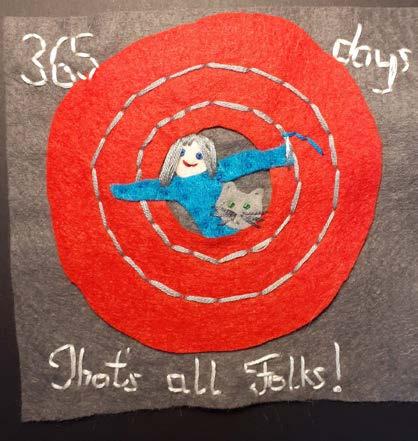
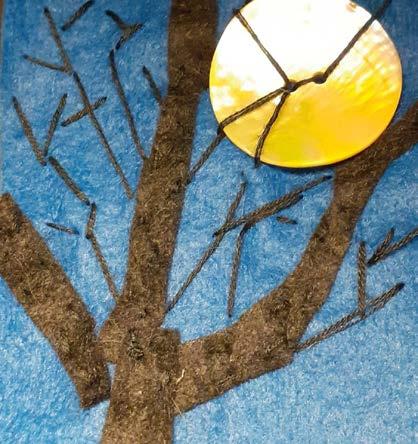
PROFESSOR KAREN RODHAM
Since the first lockdown in March 2020, Professor of Health Psychology Karen Rodham spent a year sewing a felt image each day to help deal with anxiety and to make others smile.
She says: “I could see lockdown coming, that this situation was going to be with us for some time and that it was probably going to be anxiety-inducing. So I began to think about coping strategies and thought it would be good to learn something different.
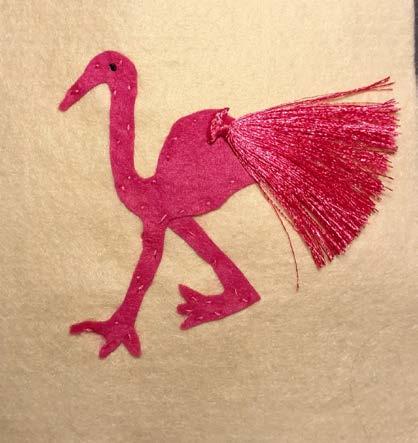
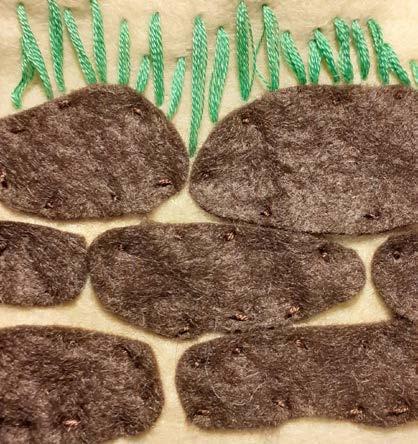

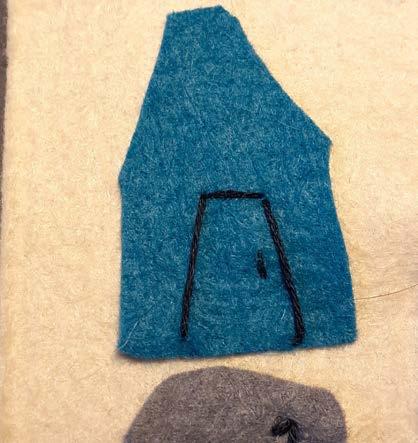

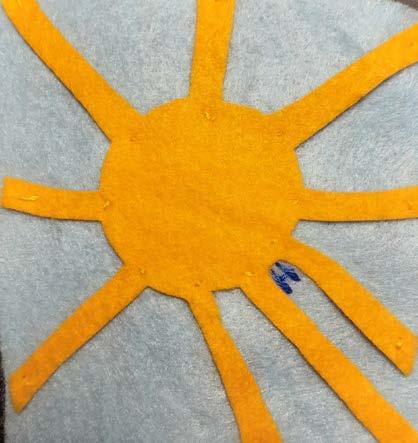
“I started dabbling with felt and trying to sew because I know that when I use my hands I’m not engaging the worry part of my brain and I have to be in the moment.”
It became part of Karen’s daily routine to capture a moment from each day in felt and she has been sharing her ‘Roddestries’ on social media. While working from home, this mindful practice at the end of the day has also acted as a boundary between work and home life.
Since her first embroidered image of the ‘What If Monster’ being put back in its box, Karen has shared candid reflections on her life, ranging from the laugh out loud to the political and the personal.
Family, friends, George the cat and even strangers feature in her hand sewn stories which now number more than 250.
“I decided to share the images on Twitter in the hope they would provide a moment of light-hearted distraction for anyone who stumbled upon them. I think if you are having a bad day or if something happens that is really tough then I think it’s ok to share it as well as just the fun, silly things.
“I’ve been quite taken aback by the reaction. It has been heartwarming and surprising to learn that it is having a positive impact and resonating with people.”
Karen finally brought her Roddestries to an end in March 2021, on the anniversary of the date they began.

